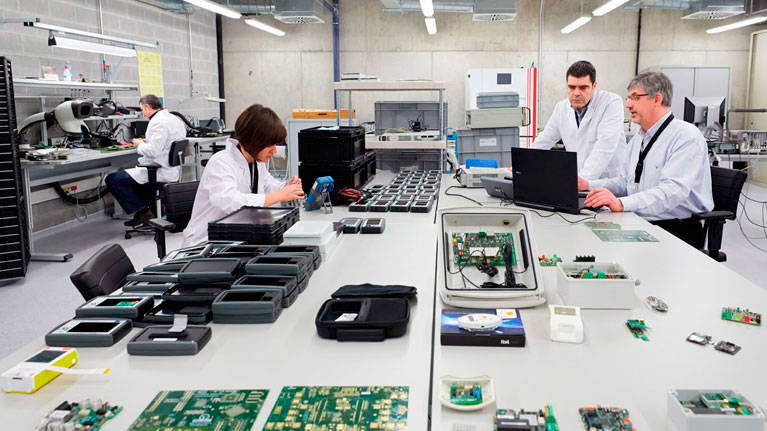Smart and autonomous devices for our cities
IK4-TEKNIKER has been involved in the Local4Global project that has developed a solution that allows smart apps to take decisions autonomously.

The desire to maximise energy efficiency in a building or the need to monitor and improve the efficiency of city traffic flows have brought about a need for the so called “smart” environments featuring a large number of sensors. Although ICTs play a fundamental role in these environments, manual operations are still required for the optimisation of their activities.
In order to deliver solutions that are able to optimise the global performance of these ecosystems, the European project Local4Global has successfully carried out pilot studies in two environments, located both in Germany, an arterial road network in Munich and multi-office building located in Aachen (Germany).
The tests delivered encouraging results. According to their main drivers, the solution made it possible to improve traffic conditions in Munich (Germany) by more than 40% during peak hours, increasing at the same time the network throughput.
Specifically, traffic lights were fitted with smart devices capable of deciding on the duration of green light cycles according to traffic flows and demands. This approach served to reduce traffic congestion significantly and allowed drivers to reach their destinations much quicker.
The system was also installed in a multi-office building in the German city of Aachen. In this instance, energy efficiency levels of several buildings were improved by more than 30% thanks to a number of devices that decided, autonomously, how to adjust air conditioning and central heating levels more efficiently, etc. to not only meet thermal requirements but also reduce the electricity bill.
Apart from the energy efficiency, there are two key attributes for the system: it requires the deployment of a "cheap" sensor system and, most importantly, it does not require any tuning or calibration by human operators (resulting in almost-zero operational costs for the system).
It means that the devices used for this purpose do not only provide real-time information and calculate suitable decisions at each point in time, but can also adapt to continuous environmental changes and do so in an optimum manner. Any orders to be sent to air conditioning devices, traffic lights or drivers, for instance, are calculated automatically to optimise global operations.
The role played by IK4-TEKNIKER
Local4Global, that finished last December after some 3 years of research work, forms part of the EU 7th Framework Programme and is made up of different European entities including IK4-TEKNIKER.
In addition to the Basque technology centre, the following organisations have been involved in this project: The Hellas Research and Technology of Greece, the coordinator of the initiative, the ETH Swiss Federal Technology Institute in Zurich, Aachen University (Germany), the German company Transver, the Technical University of Crete (Greece) and the Technical University of Munich (Germany).
The Basque technology centre has played an outstanding role within the consortium as it was responsible for developing the software used by the solution covered by Local4Global.
The equipment developed at IK4-TEKNIKER consists in a “gateway” that interconnects and couples already existing devices such as traffic lights, cell phones or satnavs to services already available in the cloud and does so in a very simple manner.
As this software has the advantage of using already existing devices, it is not necessary to install any additional high-cost infrastructures. It is also a system that is compatible with an extensive range of existing standard monitoring and communication protocols that can be easily be extended to include new protocols.
